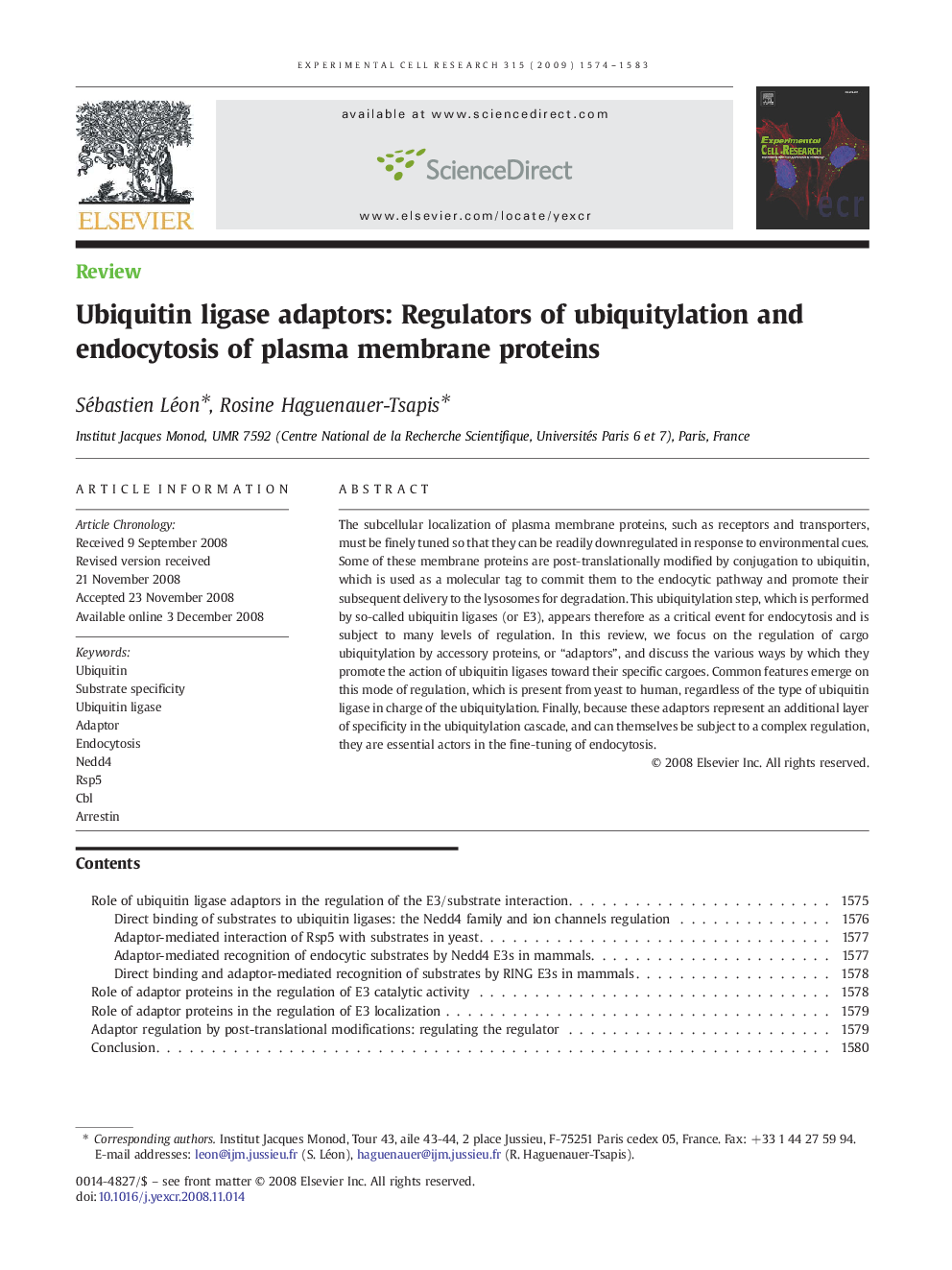| Article ID | Journal | Published Year | Pages | File Type |
|---|---|---|---|---|
| 2131682 | Experimental Cell Research | 2009 | 10 Pages |
The subcellular localization of plasma membrane proteins, such as receptors and transporters, must be finely tuned so that they can be readily downregulated in response to environmental cues. Some of these membrane proteins are post-translationally modified by conjugation to ubiquitin, which is used as a molecular tag to commit them to the endocytic pathway and promote their subsequent delivery to the lysosomes for degradation. This ubiquitylation step, which is performed by so-called ubiquitin ligases (or E3), appears therefore as a critical event for endocytosis and is subject to many levels of regulation. In this review, we focus on the regulation of cargo ubiquitylation by accessory proteins, or “adaptors”, and discuss the various ways by which they promote the action of ubiquitin ligases toward their specific cargoes. Common features emerge on this mode of regulation, which is present from yeast to human, regardless of the type of ubiquitin ligase in charge of the ubiquitylation. Finally, because these adaptors represent an additional layer of specificity in the ubiquitylation cascade, and can themselves be subject to a complex regulation, they are essential actors in the fine-tuning of endocytosis.
